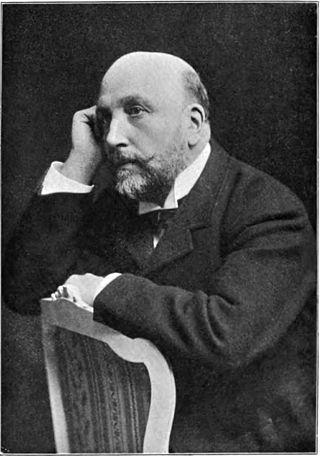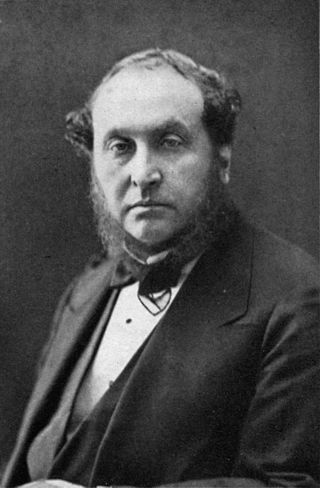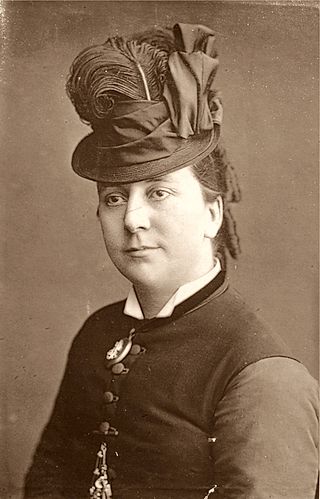


Charlotte Helen Sainton-Dolby (17 May 1821 –18 February 1885), was an English contralto, singing teacher and composer.



Charlotte Helen Sainton-Dolby (17 May 1821 –18 February 1885), was an English contralto, singing teacher and composer.
Charlotte Helen Dolby was born in London to Samuel Dolby and Charlotte Niven. Her father died when she was 10 years old. She studied at the Royal Academy of Music from 1832 to 1837, Domenico Crivelli being her principal singing-master. In 1837 she was elected to a King's scholarship, and first appeared at a Royal Philharmonic Society concert in 1841. In October 1845 she sang at the Gewandhaus, Leipzig, through the influence of Mendelssohn, who had been delighted by her singing in his oratorio St. Paul. The contralto music in his Elijah was written for her voice, but she did not appear in that work until the performance at Exeter Hall on 16 April 1847. [1]
She was a principal soloist in the first English performance of Bach's St Matthew Passion , directed by William Sterndale Bennett at the Hanover Square Rooms London on 6 April 1854 and again for the premiere of his Sacred Cantata The Woman of Samaria at the Birmingham Musical Festival in 1867.
She married the violinist Prosper Sainton in 1860, and in 1870 she retired from the career of a public singer, but two years afterwards started a vocal academy in London. She made various successful attempts as a composer, and the cantatas The Legend of St Dorothea (1876), The Story of the Faithful Soul (1879), and Florimel (1885), enjoyed considerable success. Her last public appearance was at her husband's farewell concert in June 1883. [1]
She died on the 18th February 1885 and was buried on the western side of Highgate Cemetery, near the Terrace Catacombs.
A scholarship in her memory was founded at the Royal Academy of Music. Her voice was of moderate power and of fine quality, but it was her dignified and artistic style that gave her the high place she held for so many years both in oratorio and ballads. [1]

Sir Alexander Campbell Mackenzie KCVO was a Scottish composer, conductor and teacher best known for his oratorios, violin and piano pieces, Scottish folk music and works for the stage.

Sir Michael Andrew Angus Costa was an Italian-born conductor and composer who achieved success in England.

Sir Julius Benedict was a German-born composer and conductor, resident in England for most of his career.

Sir George Alexander Macfarren was an English composer and musicologist.

Dame Clara Ellen Butt was an English dramatic contralto and one of the most popular singers from the 1890s through to the 1920s. She had an exceptionally fine contralto voice and an agile singing technique, and impressed contemporary composers such as Saint-Saëns and Elgar; the latter composed his Sea Pictures, Op. 37 with her voice in mind.

Janet Monach Patey was an English concert and oratorio contralto.

Prosper Philippe Catherine Sainton was a French violinist.

Ethel Charlotte Pedley was an English-Australian author and musician.

Kenilworth, A Masque of the Days of Queen Elizabeth, is a cantata with music by Arthur Sullivan and words by Henry Fothergill Chorley that premiered at the Birmingham Festival on 8 September 1864.
Philip Prosper Sainton was a British–French composer, conductor, and violist.
Marjorie Gwendolen Thomas was an English opera and oratorio singer for almost three decades. She sang at the Royal Opera House and was a regular performer at the Promenade Concerts and the Three Choirs Festivals and, for many years, a professor of singing at London's Royal Academy of Music. A favourite soloist of Sir Malcolm Sargent's, she also participated in a number of recordings of Gilbert and Sullivan operas.

John Sims Reeves was an English operatic, oratorio and ballad tenor vocalist during the mid-Victorian era.

John Francis Barnett was an English composer, pianist and teacher.

Mary Shaw was an English classical contralto who had an active international career in concerts and operas during the 1830s and 1840s. She is best remembered today for creating the role of Cuniza in the world premiere of Giuseppe Verdi's first opera Oberto at La Scala in 1839.
Anna Reynolds was an English classical mezzo-soprano and contralto singer in opera and concert.
Emmeline Mary Dogherty Woolley, commonly referred to as E. M. Woolley, was an English-born Australian pianist, organist and composer.

Sara Hershey-Eddy was an American musician, pianist, contralto vocalist, vocal instructor, and musical educator. She founded the Hershey School of Musical Art in Chicago.
The Bach Society was a musical organization in London from 1849 to 1870. Its primary goals, as stated in its prospectus, were (1) to collect the works of Johann Sebastian Bach, both printed and in manuscript, and all works related to him, his family, or his music; and (2) the furtherance and promotion of a general acquaintance with his music by its public performance.
William Richard Bexfield was an English composer. He is known particularly for his oratorio Israel Restored, first performed two years before his early death.

Frances "Fanny" Moody was an operatic soprano of the late Victorian and Edwardian eras, billed as 'The Cornish Nightingale'. In 1898 with her husband, the bass Charles Manners, she formed the Moody-Manners Opera Company, dedicated to presenting opera in English. The Moody-Manners company performed in London, the British provinces, North America and South Africa, with Moody often in the leading soprano roles, from 1898 to 1916.